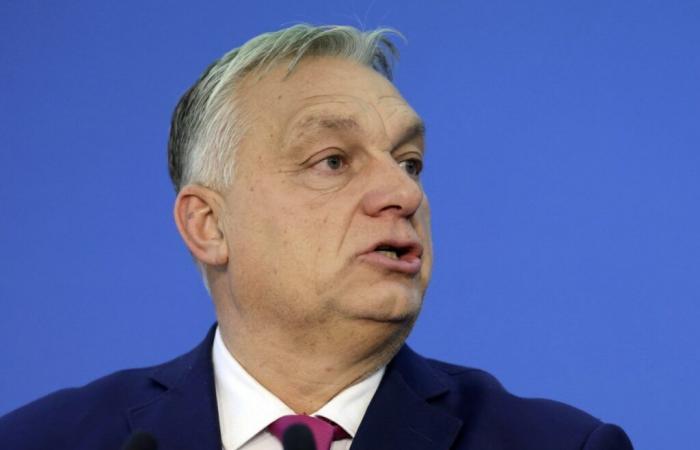Keystone-SDA
Hungary officially lost one billion euros of European funds on Wednesday. These were frozen due to breaches of the rule of law accused of Budapest, according to the European Commission, which constitutes a first in the EU.
This content was published on
January 1, 2025 – 4:14 p.m.
(Keystone-ATS) Brussels had triggered the conditionality mechanism against the Central European country in spring 2022, a procedure which resulted in the suspension of certain payments.
The Commission then raised “serious concerns” about the use of the European budget by Hungary, linked to the conditions for awarding public contracts as well as a lack of control and transparency.
Budapest has since undertaken reforms which have made it possible to release part of the money, but 19 billion remains frozen under various procedures.
“Under the regulation on conditionality, (…) the first tranche” of the suspended money, amounting to 1.04 billion euros, expired “at the end of 2024”, the Commission told AFP.
Democratic standards not respected
Since his return to power in 2010, nationalist Prime Minister Viktor Orban has strengthened his grip on power and those close to him have become spectacularly rich.
In July, the European Commission found in a report that Hungary did not meet EU democratic standards, notably on corruption, political financing, conflicts of interest and media independence.
Viktor Orban promised to “fight” to protect the money “that is ours”. “They are constantly trying to take money from Hungarians by various means and for various reasons,” he protested in December, threatening to block the EU budget to achieve their ends.
Call for early legislative elections
In this difficult context for the leader against a backdrop of economic recession, his new rival Peter Magyar called on Wednesday for early legislative elections, while several polls give his party a lead. The ballot is currently scheduled for spring 2026.
In addition to the frozen funds, Hungary has been targeted by the Article 7 procedure since September 2018. Intended to sanction a Member State where a “serious violation” of the rule of law is noted, this can in theory go as far as ‘to a suspension of this country’s voting rights within the Council of the EU.






